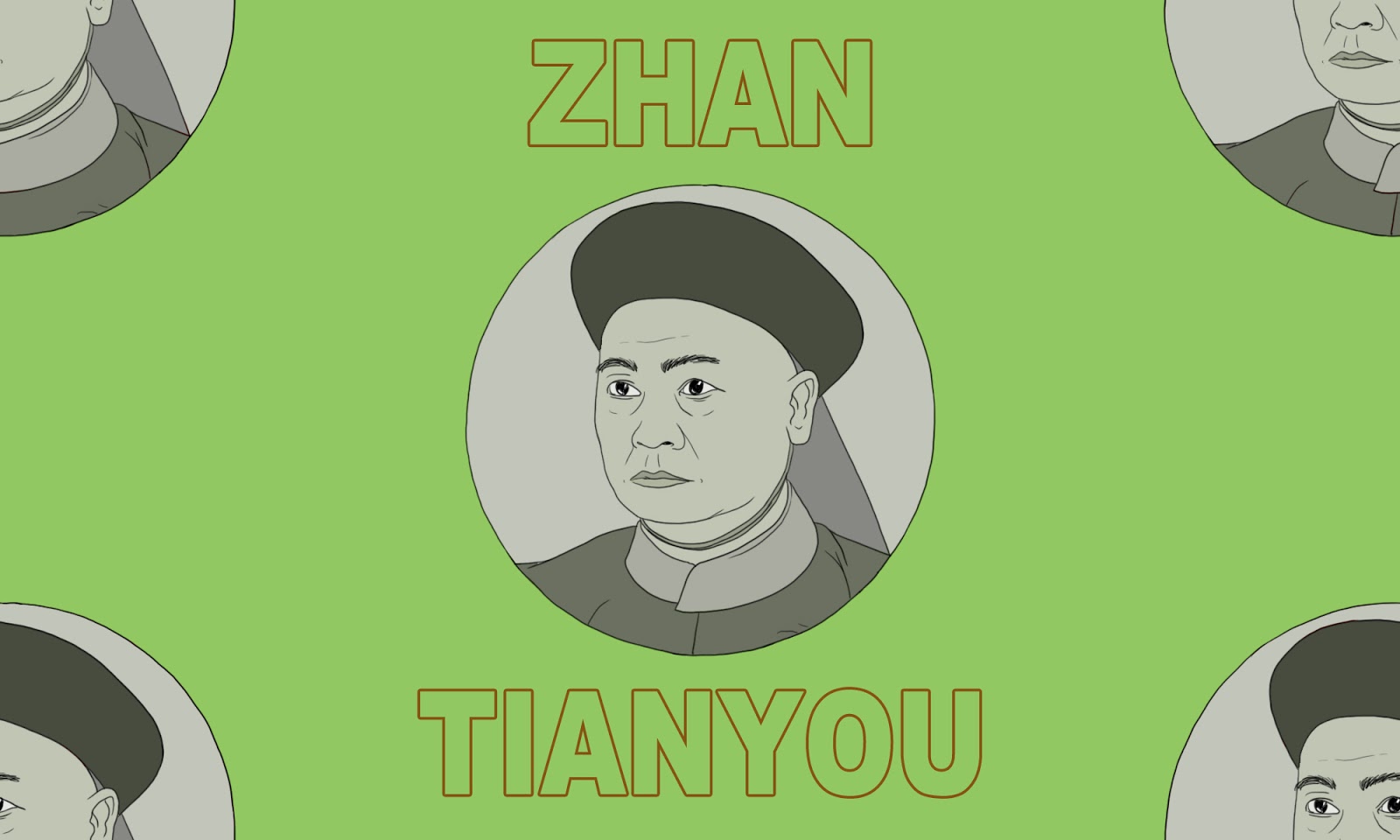China depends on trains. The country boasts the largest high-speed rail network in the world (at 36,000-plus kilometers), which traverses deserts, scythes through mountains, and marches over rice paddies. Journeys that once took days, weeks, and months can now be completed in a matter of hours, which benefits commuters and merchants alike. Freighters have lumbered through to Europe at record rates in 2020, carrying precious exports to the rest of the Eurasian landmass.
But some hundred years ago, the story was very different. There were only a handful of railway lines, the exclusive property of the Western powers who attempted to use them to carve up China. The Chinese thought railways inauspicious, the straightness of their tracks bad feng shui, and the engines demons, with their smoke and fumes. The Empress Dowager Cixi saw little use for them in China beyond pleasure cruises around the Imperial gardens to the west of the Forbidden City (the carriages pulled by eunuchs to avoid those nasty engines).
So no surprise that once the Qing decided to modernize, there were few Chinese equipped with the knowledge to build railways. But this would change under Zhān Tiānyòu 詹天佑.
Who is Zhan Tianyou?
Zhan was a bright boy, stated by colleagues in later life to have been a man of few words but firm common sense. He was selected by the Qing government in 1872 at age 12 to study Western technology in America as part of the ill-fated Chinese Educational Mission. Although closely watched by their overseers, these boys became Americanized — cutting off their queues, speaking English and wearing Western clothes. Zhan and others become fond of baseball, giving an Oakland semi-pro team a run for their money. Even in later life, Zhan would teach his children to play tennis.
Zhan excelled in mathematics at high school and university, enrolling at the Sheffield Scientific School at Yale, majoring in civil engineering with an emphasis on railroad construction. But in 1881, the Qing government, shocked at tales of assimilation into barbarian Western ways, ordered the immediate return of the students to China. Zhan was one of the lucky few to have completed his Ph.D. before the order was given.
The Qing were wary of these returning students — could they have been turned into Western agents while abroad? To be on the safe side, they were placed in a naval college to retrain for the newly Westernized navy. But “they were literally looked on as plotters,” according to Zhan’s obituary in the academic journal Proceedings of the American Society of Civil Engineers, “their every movement was secretly watched by Government agents.” Despite being decidedly over-qualified, Zhan was given the humble job of naval instructor, but got the opportunity later on to make the first survey of the port of Canton (modern-day Guangzhou).
But he dreamed of railroad building, something the Qing government distrusted, a clear manifestation of the seismic changes the West was inflicting in the Empire. They were a tool of the foreign powers, whose ideas, clothing, and technology were towed along in the wake of those brassy, steam-wreathed engines. Foreign powers would finance line construction in return for ownership and full control of territory in a 20-mile wide stretch around any rails — a disastrous deal for any sovereign territory to make, but what choice did the bankrupt, defeated Qing have?
Zhan would have to wait until 1888, with the launch of a line from Beijing to the coal mines of Tangshan via Tianjin, organized by a British engineer named Charles W. Kinder. Beijing friends got Zhan the post of intern engineer. Connecting China’s two busiest cities in the northwest seemed logical to many, but the Qing were wary of Tianjin using it to steal importance away from the capital. But when the progressive Prince Gong (奕䜣 Yìxīn) found he could traverse 81 miles in three comfortable hours — compared to the whole day needed to cover the 10 miles to the Beijing station — the project gained momentum. Zhan was promoted for his capability, first to a full engineer, then to district engineer.
The next challenge came in 1902, after the Boxer Rebellion. The Imperial Court decreed that a trip to the ancestral tombs was required to give thanks for the return of peace — and per tradition, a processional route would need to be built. Modernizer Yuán Shìkǎi 袁世凱 convinced Cixi that the 36-kilometer route should be by rail — the obvious choice to design this route was Kinder, but disputes with the French, who were angry at the prospect of an Englishman building a branch off of one of their loan lines, meant the job fell to a third party: a skilled Chinese.
Zhan got the job — but the Anglo-French bickering meant he started late. “Four months to survey, build, and run trains over 28 miles of virgin country!” winced the Proceedings of the American Society. Zhan worked 15 hours a day and slept little, for fear of being executed if he failed to meet the deadline. But the railway was completed on time and under budget, with Cixi awarding Zhan the title of “prefect” as a reward.
His greatest achievement was yet to come: the first stretch of railway built solely by the Chinese, with no foreign help whatsoever. This went from Beijing to the important trade city of Kalgan (modern-day Zhangjiakou, Hebei Province — which is scheduled to co-host the 2022 Winter Olympics with Beijing). Kinder once again had been nominated for the job, but the Russian government pointed out that as part of its treaties with China, any railroad built beyond the Great Wall toward Mongolia should be built and financed by Russians — unless the Chinese wanted to try and do it themselves.
Yuan Shikai selected Zhan to head the team. The railway stretched northwest, passing under the Great Wall at Badaling. It may have been only 77 miles, but it traversed the steep and unleveled terrains of the Jundu Mountains.
The pressure was substantial. “If the Beijing-Zhangjiakou project turned out to be a failure, it would not only be my misfortune, but also the misfortune of all Chinese engineers and a great loss for China,” Zhan later told an American friend. “Before and even after I undertook the project, many foreigners declared that Chinese engineers would never be able to handle the stonework and caves between BJ and Zhangjiakou, but I’m sure that I could succeed.”
Once again, he overachieved, completing the job with a fifth of the budget estimated by foreign engineers and two years ahead of time. After this his talents went unquestioned, given a place on the board of railroad companies and collaborating on substantial projects across the country.
Despite being well respected by China’s leaders, Zhan stayed out of politics, refusing an offer to join Sun Yat-sen’s Revolutionary Party — he was but a humble engineer, not a leader of men. But his loyalty always remained with China, a keen promoter of Chinese talent in this strange foreign technology that, somehow, held the key to modernity. A German chief engineer once complained to Zhan (then director-general of the Guangzhou-Wuhan-Sichuan railway line) that the Chinese engineers working under him were inept and should be replaced with Germans. Zhan responded that if they were inept they could be replaced, but Chinese engineers needed to learn about railroad construction for the good of the nation. Once the Xinhai Revolution started, many of the wealthy fled to Hong Kong, but Zhan carried on with his project, the construction of the Guangzhou-Wuhan-Sichuan railway network.
Zhan’s successful career as a railroad engineer, scaling the formidable natural obstacles of mainland China with innovative builds, earned him the admiration of both Chinese and foreigners alike. By his death in 1919, he’d been awarded membership of prominent British and American engineering societies.
In modern China’s warren of concrete and metal, Zhan’s feats seem very small. What’s 77 miles completed in five years compared to, say, the 819 miles of high-speed track connecting Beijing and Shanghai, completed in three years? But Zhan’s career marked a first step — of China getting over its fear of railroads as a foreign threat and eventually mastering them.
Chinese Lives is a weekly series.






